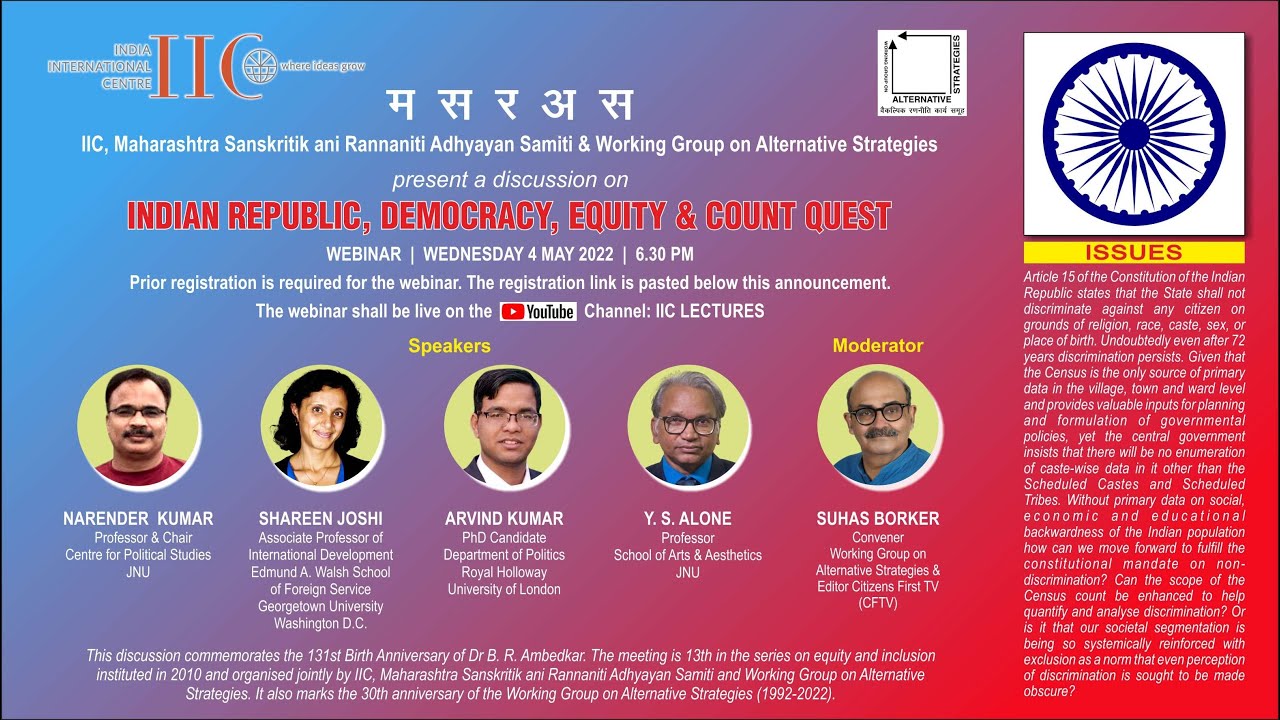Panelists: Dr. Shereen Joshi, Associate Professor of International Development, Edmund A. Walsh School of Foreign Service, Georgetown University, Washington DC; Prof. Narender Kumar, Professor, Centre for Political Studies, Jawaharlal Nehru University; Shri Arvind Kumar, PhD Candidate, Dept. of Politics, International Relations and Philosophy, Royal Holloway, University of London; and Prof. Y.S. Alone, Professor, School of Arts and Aesthetics, Jawaharlal Nehru University
Chair: Suhas Borker, Editor, Citizens First TV (CFTV) and Convener, Working Group on Alternative Strategies
Article 15 of the Constitution of the Indian Republic states that the State shall not discriminate against any citizen on grounds of religion, race, caste, sex, or place of birth. Undoubtedly even after 72 years discrimination persists. Given that the Census is the only source of primary data in the village, town and ward level and provides valuable inputs for planning and formulation of governmental policies, yet the central government insists that there will be no enumeration of caste-wise data in it other than the Scheduled Castes and Scheduled Tribes. Without primary data on social, economic and educational backwardness of the Indian population how can we move forward to fulfill the constitutional mandate on non-discrimination? Can the scope of the Census count be enhanced to help quantify and analyse discrimination? Or is it that our societal segmentation is being so systemically reinforced with exclusion as a norm that even perception of discrimination is sought to be made obscure?
This discussion marks the 30th anniversary of the Working Group on Alternative Strategies (1992-2022) and the 13th discussion in the series on equity and inclusion instituted in 2010
(Collaboration: Working Group on Alternative Strategies; and Maharashtra Sanskritik ani Rannaniti Adhyayan Samiti)


